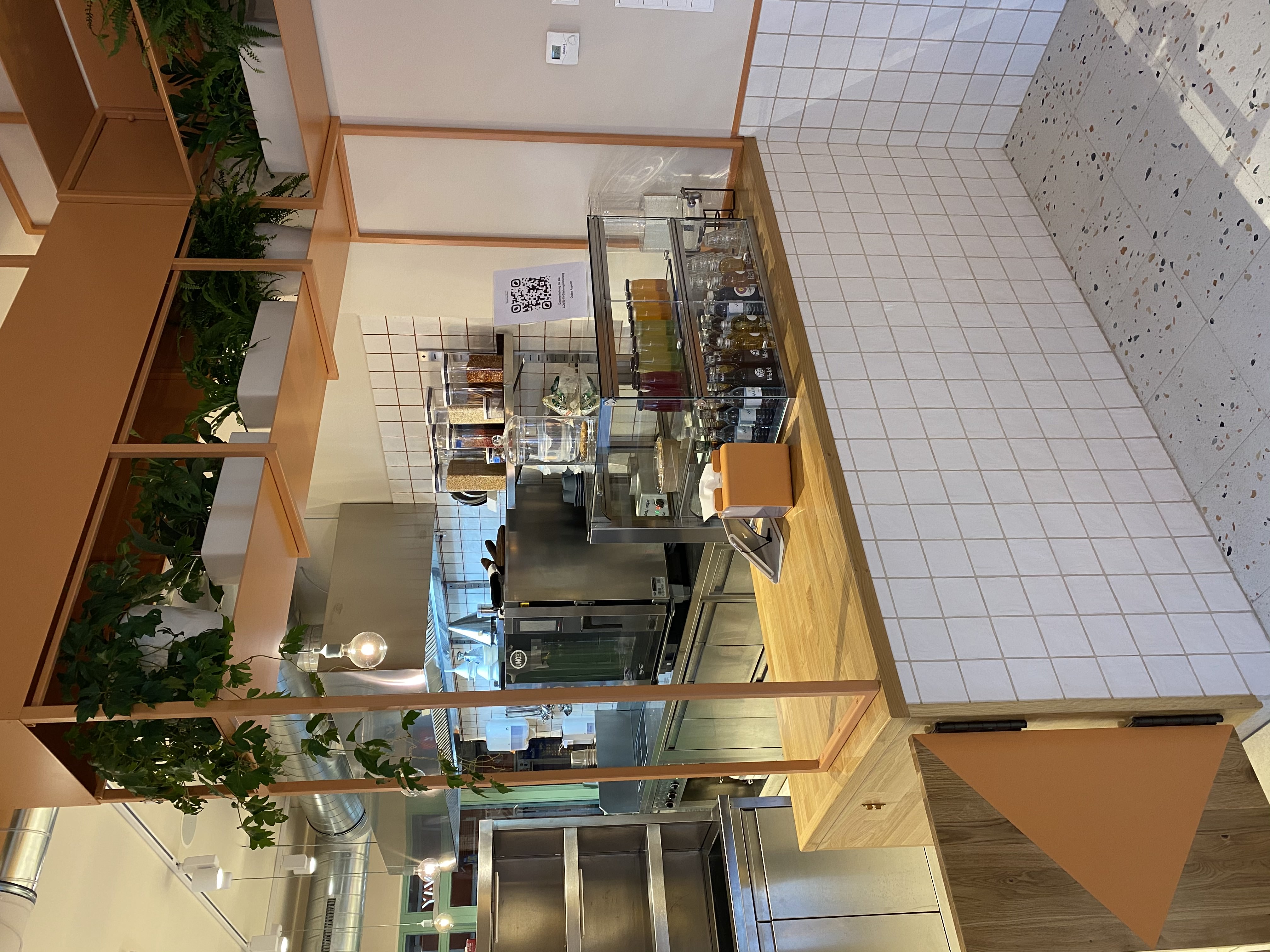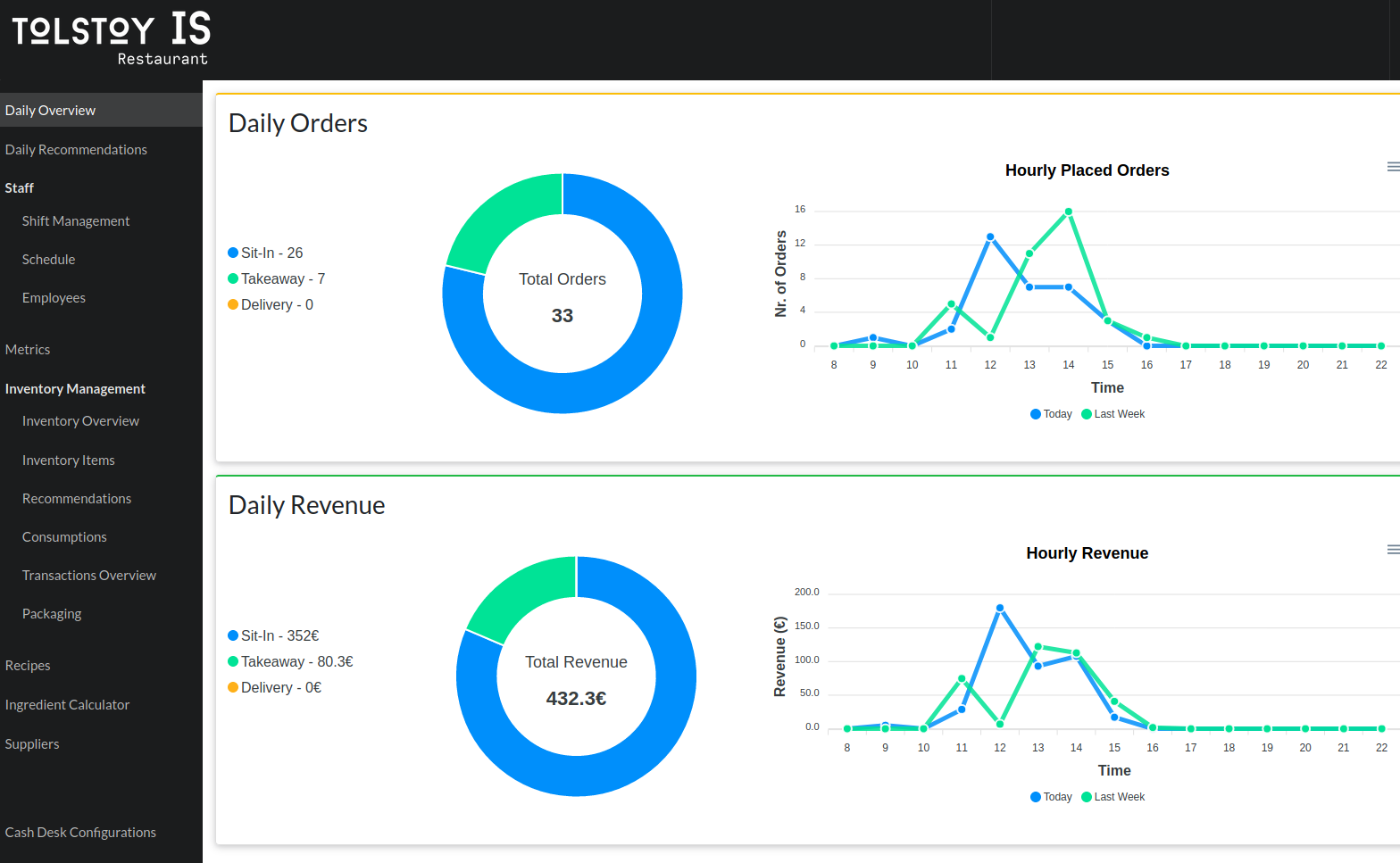Tolstoy was conceived as a cashless, fully self-service restaurant long before the Coronavirus pandemic hit. Two weeks into our soft opening, not only can we see that our plan has proved to be successful, it’s actually brought additional unintended benefits which we hadn’t foreseen. Here I list the reasons why we opted for card-only payment and self-service kiosks instead of a staffed cash register:
- Sanitary benefits. This one was obviously an unintended but happy surprise. The effect here is two-fold. Firstly, cash has been proven to be a major source of Covid-19 transmission. Recent research has suggested that the virus survives on the banknotes for up to 30 days. Since the pandemic began, many supermarkets and businesses have started to urge customers not to pay with cash. In Austria, this is a big deal, and of course some businesses and customers stubbornly persist in their old-school ways. In any case at Tolstoy, we didn’t need to implement nor encourage this transition – we didn’t use cash in the first place.
Secondly, we don’t have a cash register and therefore a cashier. All payments are settled at our self-service kiosks, and the only contact Tolstoy staff have with the customer is when a completed order is placed on our 1-meter wide counter.

Since the customer picks up their order only after their tray is placed on the counter, actual direct contact between staff and customers is minimal.
- Cost and process benefits. We have calculated that by focusing exclusively on self-service, we have saved at least 20 man hours per week. Cash is a tricky business: you need to count it both in the morning and in the evening, you need staff interact with customers and give change, and you need to wash hands if you want to touch food or drink after touching cash.
All this might sound simple, trivial even, but during a lunchtime rush, this adds up and creates additional stress and capacity bottlenecks in the kitchen. By removing that complexity, not only do we simplify processes, we reduce costs. People have asked me a few times already how we can serve high quality products at affordable prices. For example, a grain salad weighing in at almost 400 grams, topped with roasted squash, chipotle remoulade, fresh tarragon and chicory costs 5,10 €. The answer is simple. We believe that by bringing fast food and a digital mindset into the whole-foods restaurant segment, we can serve high-quality meals for the price of a burger or less.
Why should a dish made of butchered animals, with the myriad cost overheads tied to meat production cost less than a plant-based dish? It shouldn’t: the price of meat has long been warped by a combination of government subsidies and the economies of scale of industrial farming, not to mention the fast food sector’s historical focus on animal-based foods instead of plant-based foods.
- Live and 100% accurate overview of revenue. Card-only payment allows us to see the curve of incoming revenue live. If we see a dip in revenue, we can immediately adjust our operations or initiate a promotion to lure customers in. This transparency is game changing and helps us manage our operations more efficiently.

Reduction of mismanagement risks. No matter how good your employees are, cash tends to disappear. Even without malicious intent – it can be mismanaged. For example, a customer might receive too much change, or someone might open a cash register and pay something urgent out of it and forget to register the transaction. Cash is not traceable and it’s not transparent. Since we do not believe in punishing employees for their mistakes and we believe in full transparency – not having cash solves these problems.
Security is a non-issue. Having cash means having a safe and having to transport money to the bank regularly. Not having to deal with this is an operational blessing. Plus, there is no cash to steal at the restaurant, therefore the incentive to break in for criminals is automatically lower compared to other businesses.
Are there any disadvantages in not handling cash? I don’t see any. In the two weeks we’ve been open only two customers have asked us whether we take cash. When we answered that we are cashless, they just paid by card without any further questions. Covid-19 has been a huge slap in the face to humanity, and it certainly hasn’t made for an optimal business climate. But in terms of payment, it has wrenched old-school Europe into the 21st century and made people more accustomed to cards and other forms of payment such as Apple Pay. I believe that this trend is here to stay, and Tolstoy will be one of the first companies in Austria to benefit from it.